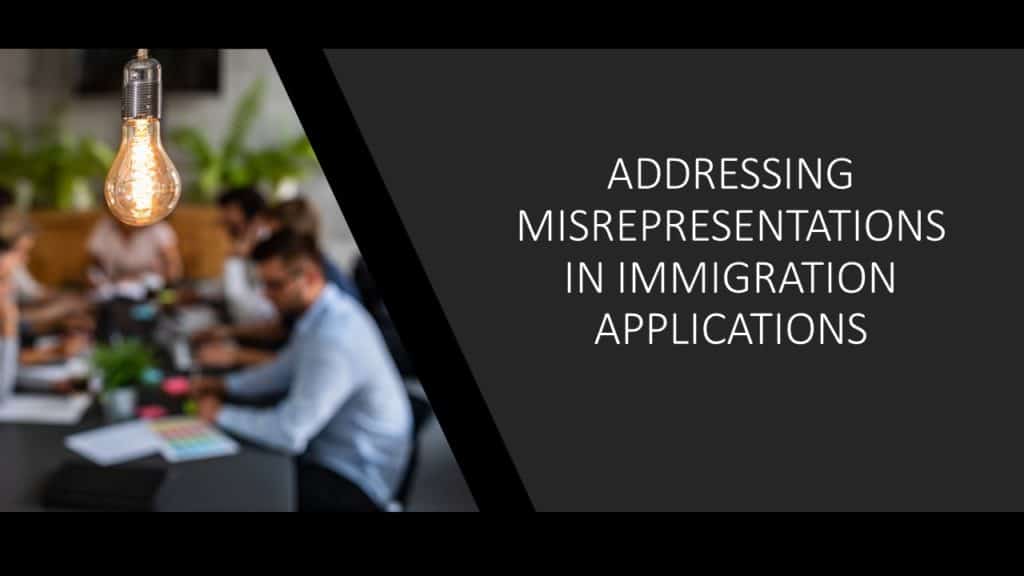
WHEN
Live webinar June 6, 2022 @ 12:00 PM EST
OR available available video recording
INSTRUCTOR
Samuel Plett
DURATION
3 hours
SUMMARY: This course will examine one of the most common (and broad) grounds for inadmissibility: misrepresentation. Clients can be caught by the misrepresentation provisions even based on ‘innocent’ mistakes. Therefore, it is imperative that immigration practitioners dealing with all forms of applications under the Immigration and Refugee Protection Act (‘IRPA’) be familiar with the test for (and consequences of) misrepresentation. The course will begin by examining the relevant statutory provisions and jurisprudence, and provide practice examples from real-life scenarios. The course will address common ethical questions that arise in cases dealing with misrepresentation, with a special focus on the duty of disclosure.
CPD CREDITS
For Lawyers and Paralegals
Law Society of Ontario
• Substantive Hours: This program is eligible for up to 3 hours
Law Society of British Columbia
• Approved for 3 CPD credits
Law Societies of Alberta, Manitoba, Newfoundland and Nova Scotia
• For members of these Law Societies, consider including this course as a CPD learning activity in your mandatory annual requirements
For Regulated Canadian Immigration Consultants
College of Immigration and Citizenship Consultants
• Approved for 3 CPD hours
• Video recording valid until June 6, 2023
Awaiting Further Accreditation
This course is no longer for sale.
Click below to see an updated version:
If you are interested in several previous year courses, reach out to us at [email protected]

Sam is a graduate of the Faculty of Law at the University of Toronto. Prior to law school, Sam studied Peace and Conflict Studies at the Trudeau Centre for Peace and Conflict Studies at the University of Toronto. He is a member of the Canadian Association of Refugee Lawyers, the Refugee Lawyers Association, and the Canadian Bar Association.
Sam has experience in a wide variety of immigration matters, including applications involving inadmissibility matters, humanitarian and compassionate applications, pre-removal risk assessments, family sponsorship applications, temporary resident permits, and applications for work and study permits. Sam has extensive experience with applications for Judicial Review before the Federal Court of Canada, including applications involving constitutional challenges and motions for stays of removal; and has appeared before the Federal Court of Appeal. Sam has appeared before all three Divisions of the Immigration and Refugee Board in various matters including refugee hearings, appeals before the Immigration Appeal Division, and detention reviews.
Prior to his work at Plett Law Professional Corporation, Sam was a Partner and Head of Litigation at Desloges Law Group.
In 2015, Sam received the Canadian Bar Association Immigration Law Section Founders’ Award, given to a young lawyer “for achieving professional excellence, providing leadership, and making a significant contribution to the Canadian citizenship & immigration community”.
As a law student, Sam was awarded the Ting Sum Tang Memorial Prize (awarded to the student taking the highest place in Immigration Law) and the John Yaremko Award in Human Rights.